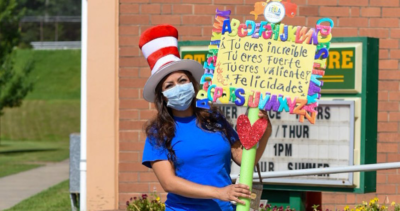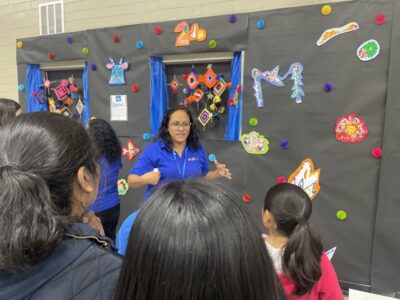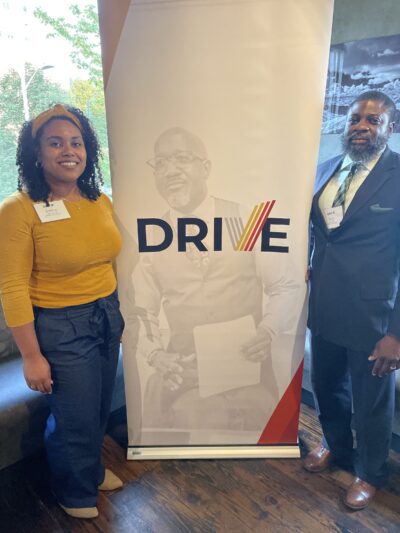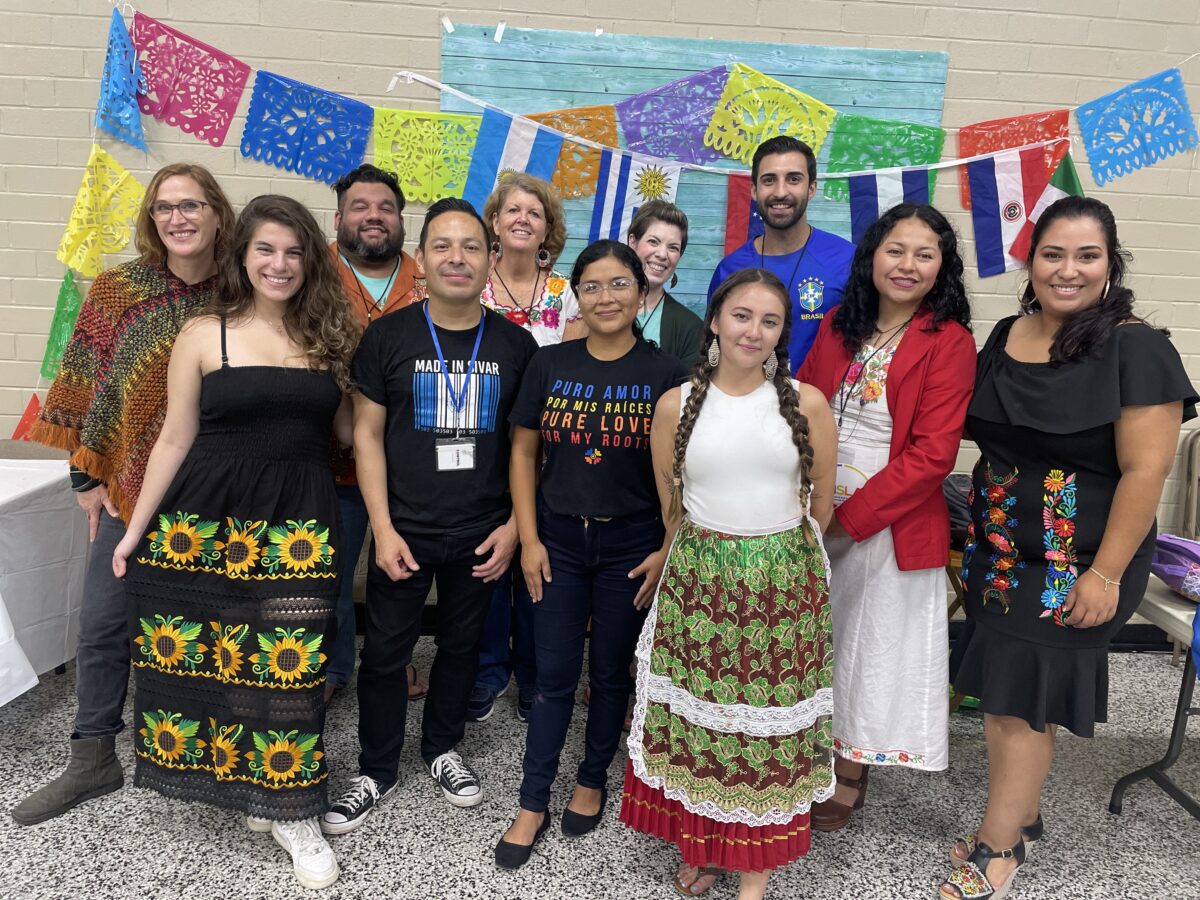
|
|
Sep. 15 to Oct. 15 is recognized as National Hispanic Heritage Month. This specific time is dedicated to highlighting the anniversary of several Latin American independence days.
On Sep. 23, students, families, and community members came together for VIVA ISLA, a day of music, dancing, food, and fellowship at St. Thomas More Elementary School in Chapel Hill. Hosted by Immersion for Spanish Language Acquisition (ISLA), the event showcased their many programs and partnerships while also celebrating identity, culture, and legacy.
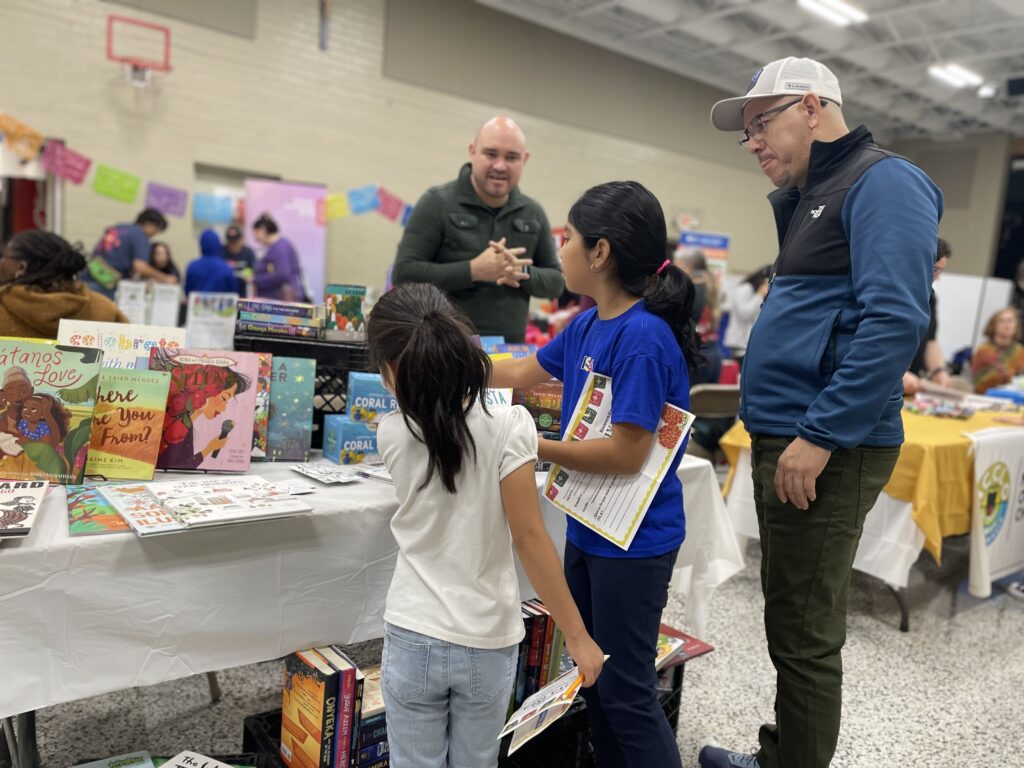
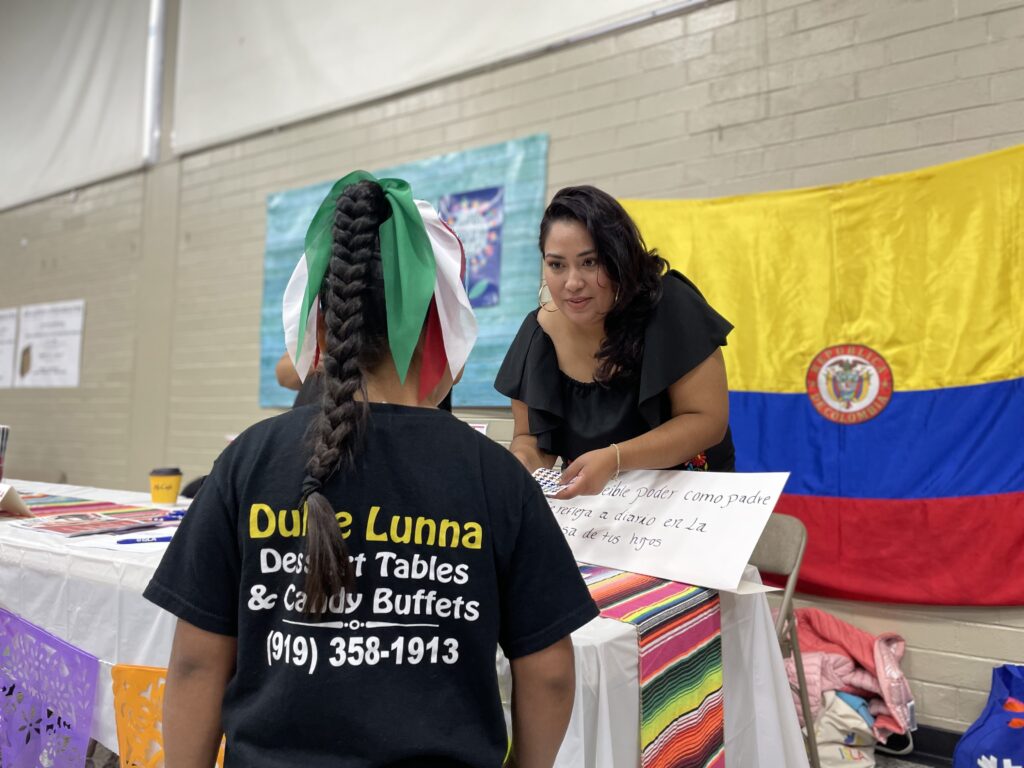
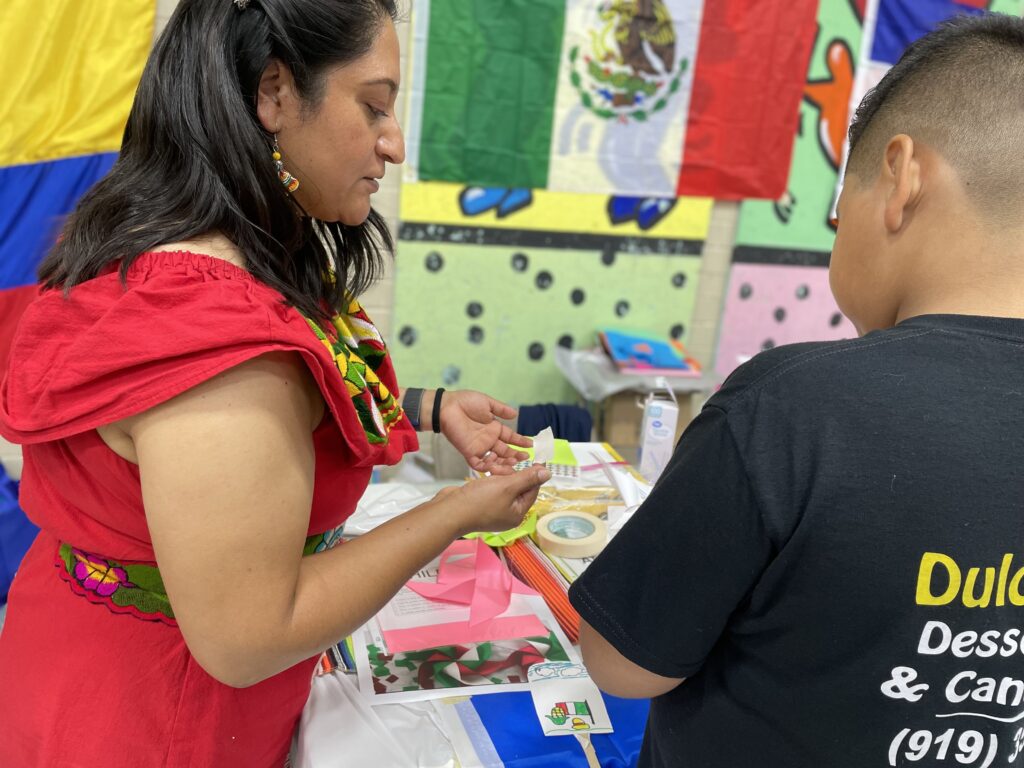
The importance of celebrating culture
“The celebration of culture and just the diversity among the Latino community, it’s something that we need to continue to nurture in our children so that they feel proud of who they are,” said Mary Jones, interim board vice president for ISLA.
In her work at El Futuro health clinic, Jones commonly sees a lack of self-identity, particularly among teenagers. She said language barriers are one primary factor that may create a disconnect between teens and their parents. Thus, Jones sees the importance of having organizations like ISLA filling the cultural and language gap through support for both students and families.
“They start to develop those protective factors that will allow them to feel safe to feel secure of who they are, so that they can then thrive in school,” Jones said.

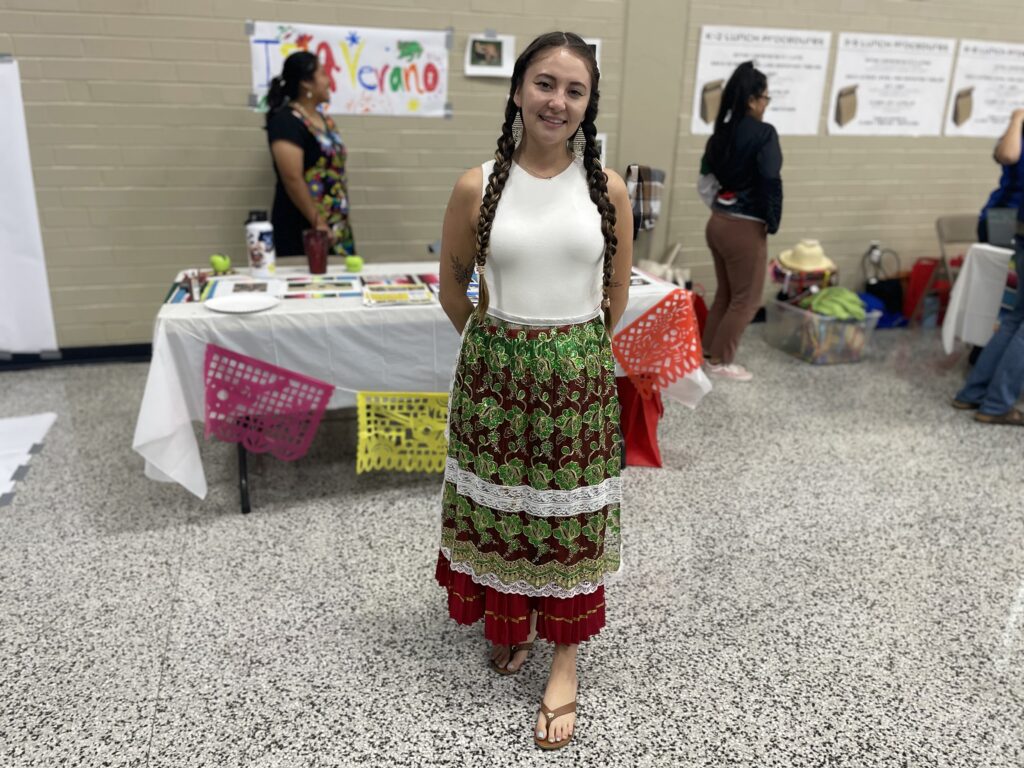

“I think that the work that ISLA is doing is so important and so necessary. The sense of community involvement, empowerment, and belonging that they’re creating is something so special.”
Sarah Montgomery, senior policy advocate for NC Justice Center, Co-chair at Every Child NC, and ISLA board member
About ISLA
ISLA is a nonprofit with a mission to build community and leadership through their educational Spanish language and cultural immersion programs. Josue Cordova, interim co-executive director of ISLA, shared that they accomplish the mission by celebrating their heritage language and nurturing Latin American culture in North Carolina.

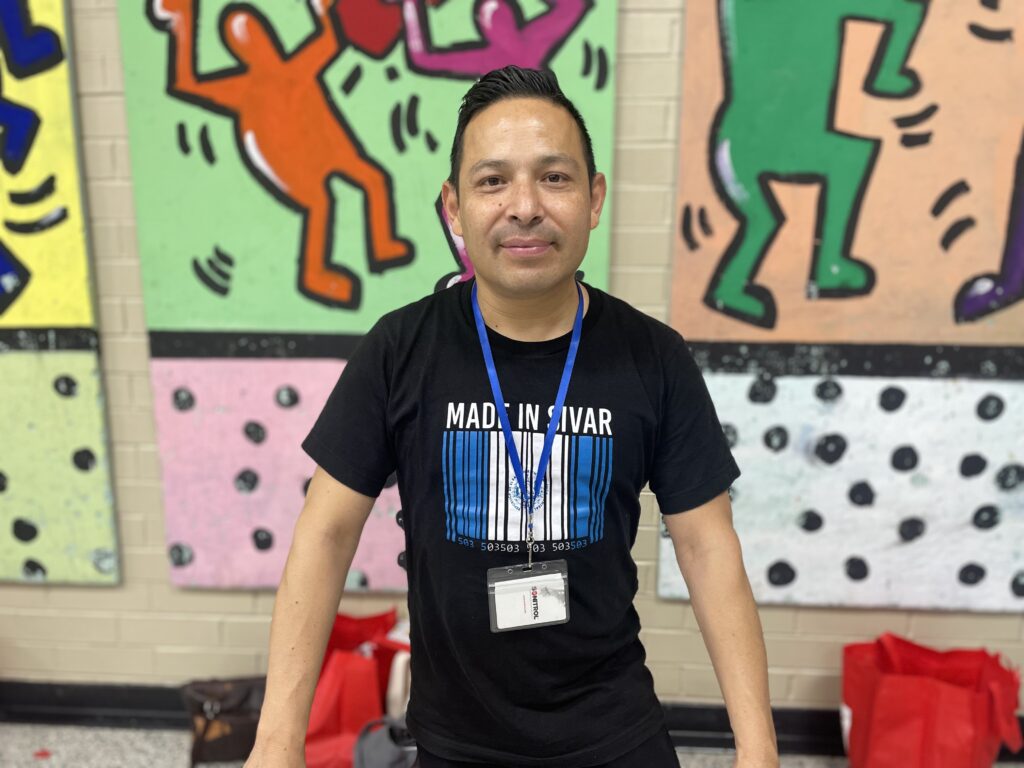
Between 2010 and 2020, the Hispanic population in North Carolina grew by 40% to 1.1 million people, or 11% of the total population, according to North Carolina’s Office of State Budget and Management. At that rate, they project that Hispanic North Carolinians could grow to account for 14% of North Carolina’s total population by 2050.
Cordova said this fast pace growth supports the need to establish safe, community-based educational spaces for families that they serve to feel connected. This is achieved through the following events and programs:
- ISLA Los Sábados is an educational heritage language immersion program offered weekly to children ages three to 17. According to the site, the aim is to “close the opportunity gap and open doors for Hispanic/Latino youth, their families and community.” With over 60 hours of in-person learning, an interdisciplinary approach is applied to their model of culture exploration, inclusive of literacy, arts, and STEM.
- ISLA Verano is said to “transport” students to Spanish speaking countries by combining fantasy, culture, stories, and other fun activities. For six weeks during summer, participants in grades K-5 learn Spanish through interactive outdoor explorations.
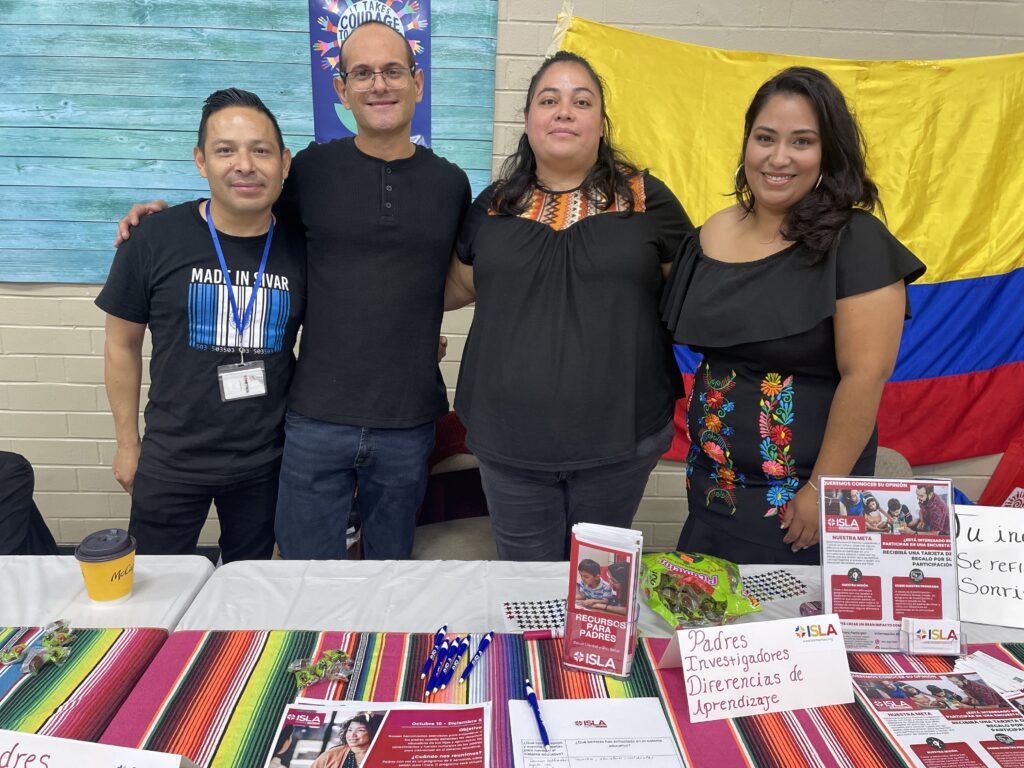

- ISLA Padres focuses on services for parents and students’ families. They provide resources for “navigating the education system in order to work towards an equitable society.” This includes access to a support network, workshops, research training, and learning skills for advocating for their children.
- Spanish online courses are offered to students in grades K-5 during or after school. ISLA also has adult online courses as well. Both categories maintain small group learning environments catered to varying levels of Spanish speakers from introductory to higher mastery. The program is offered through Durham Public Schools Ignite Academy.
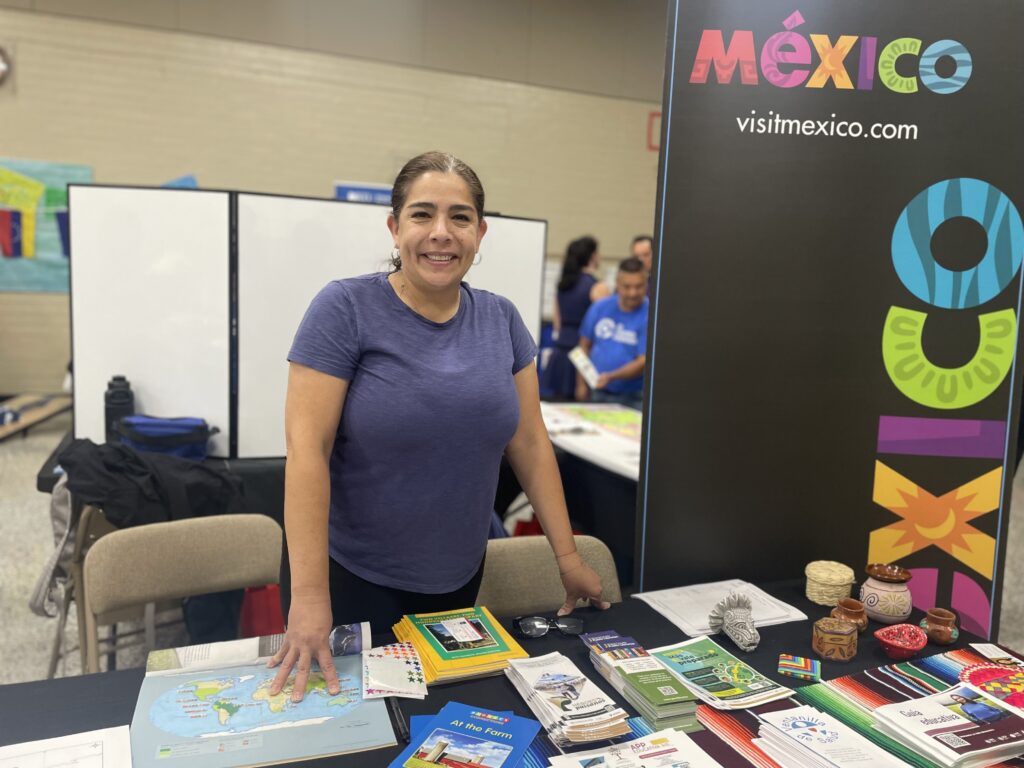

Within the displays about programming, several community partners were also present to provide additional resources to VIVA ISLA attendees. Among them was Maria Dorantes of the Consulate of Mexico in Raleigh. She stated their work isn’t just issuing passports and identification cards, but also “helping the Hispanic community navigate the U.S.” This includes things like supporting with access for continuing education and understanding rights as it pertains to education.
Many organizations align and support in various areas of ISLA’s work, from education and technology to legislation and advocacy. Below is a list of ISLA partners that were present at VIVA ISLA.
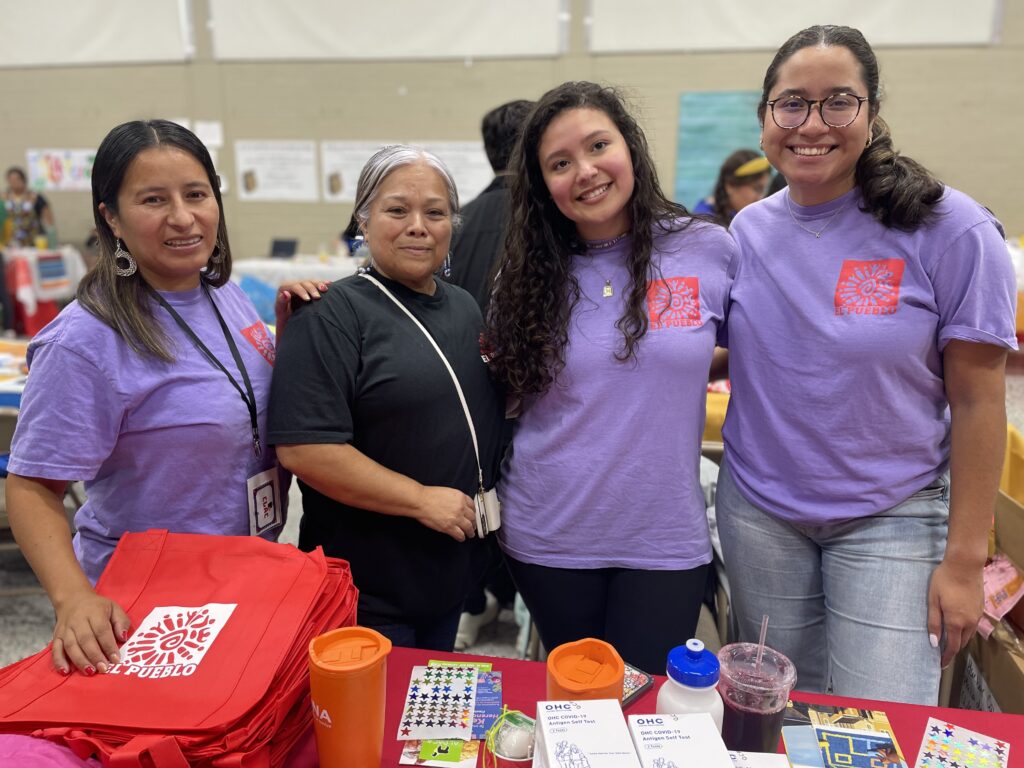


Additionally, among the activities and festive atmosphere curated by the DJ, there were several dance performances. One group, Folklore of Mi Tierra, was made up of ISLA students and coached by a parent of the group members.
Overall, the day served as an exemplar of the collaborations and cultural connections that ISLA strives to nurture. Reflecting on the event, Dominique Ospina, community advancement manager at ISLA, voiced that, “We wanted to showcase our programs, but we want to showcase everything that we do, which is just being a familia.”
Empowerment and creating a space where students and parents feel they rightfully belong are ways in which she describes ISLA’s efforts.
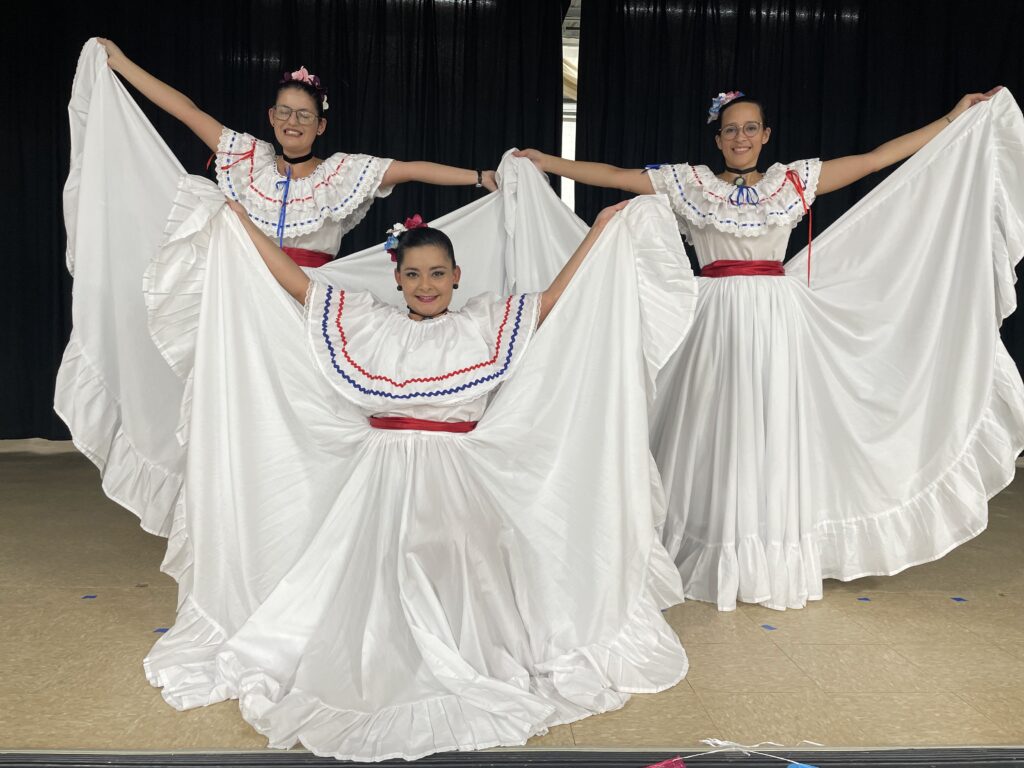
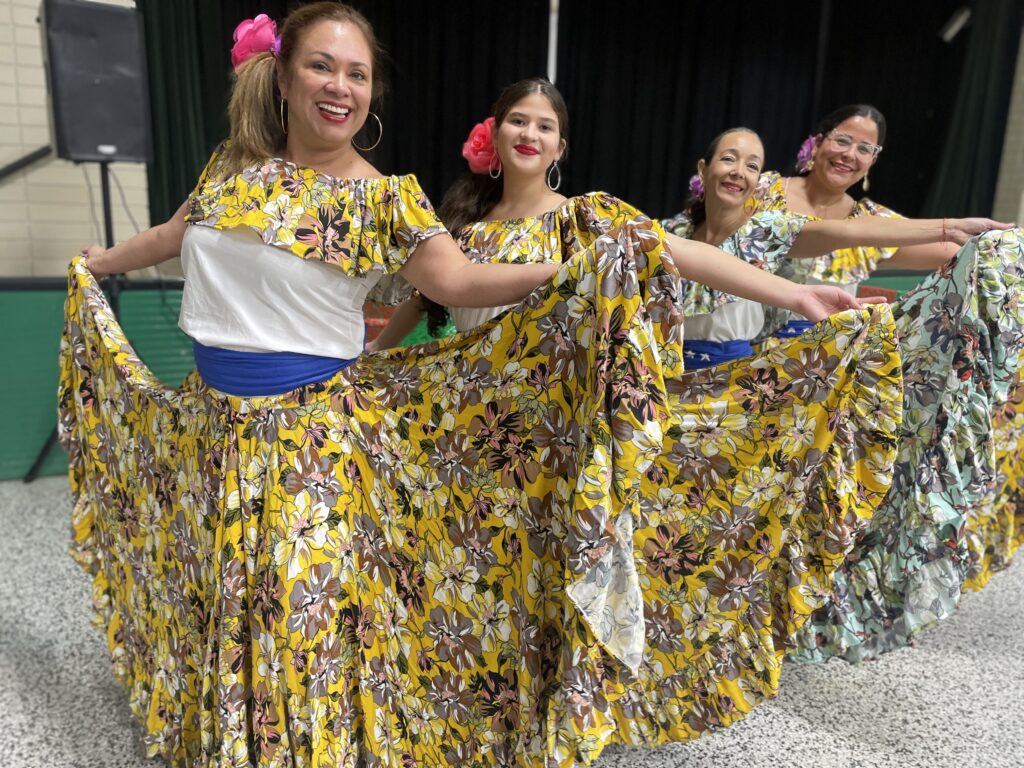
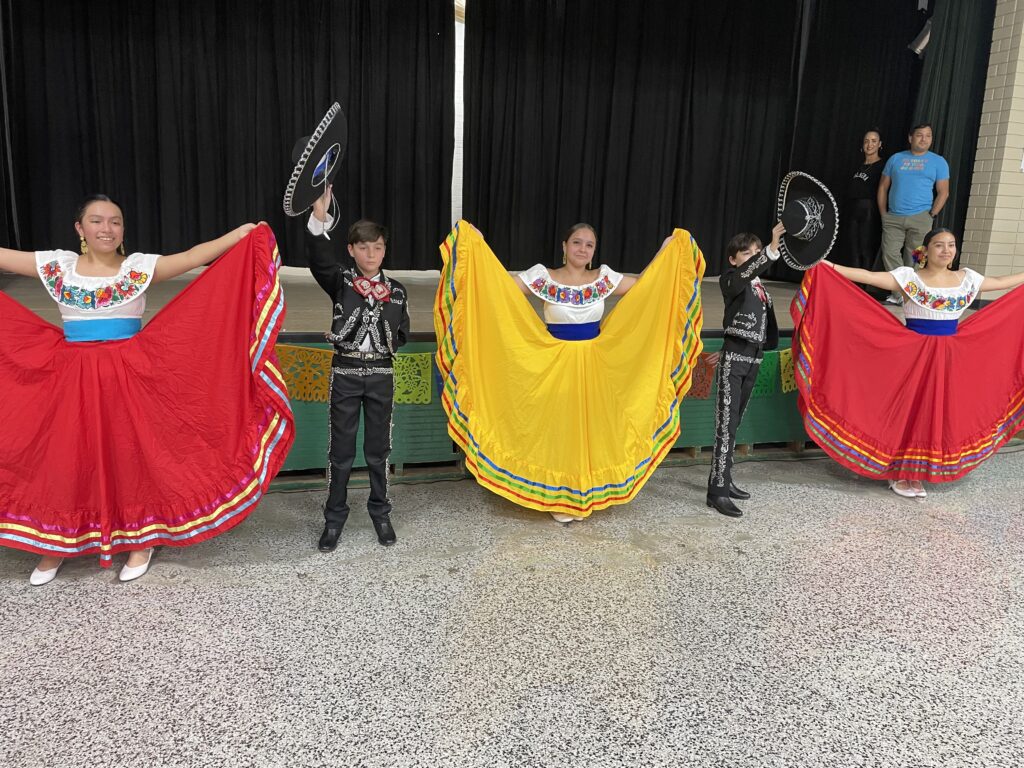
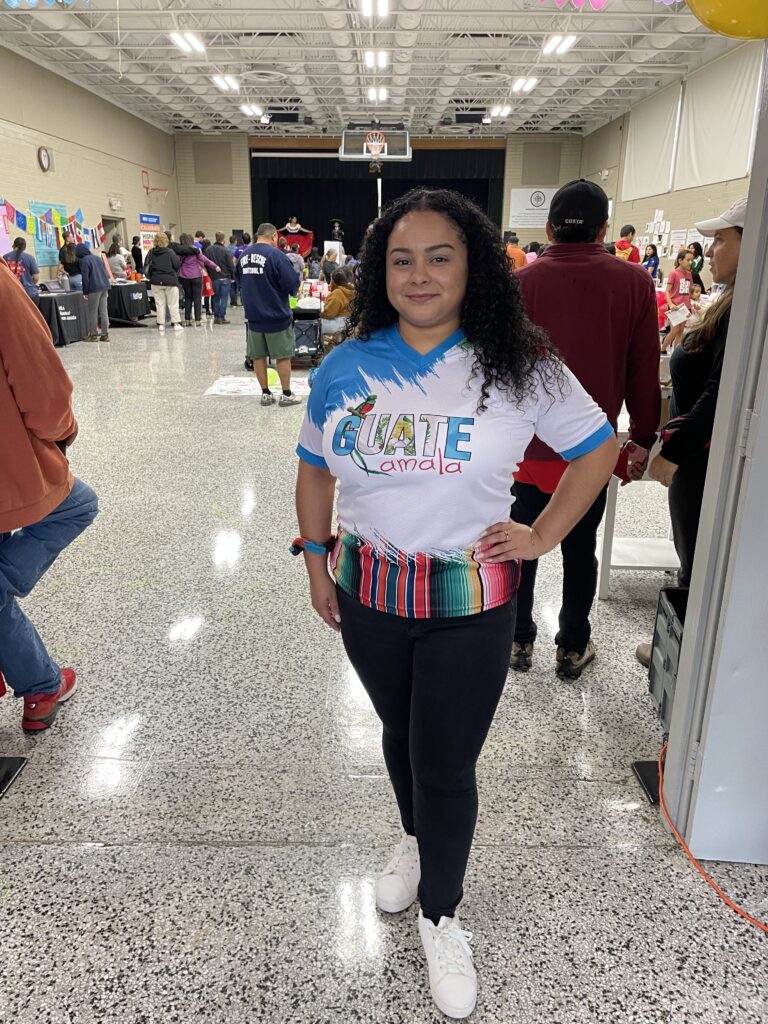
“In the Hispanic/Latino world, we love doing parties, and you know, getting together, eating good food, and just being together as a family. ISLA, it’s a family, and a lot of people when they come to the United States, they don’t have that; they probably left them where they come from or they’re separated. So, whenever they come and find ISLA they’re like, wow, I finally have my family.”
Cindy Salazar, ISLA’s education programs manager
Honoring legacy
“For me, it’s very important that my children feel proud of their ancestors. It’s important that they feel that connection.”
Mary Jones, ISLA interim board vice president
Dayson Pasión, ISLA board president, considers VIVA ISLA to be a space where the community can fully be their authentic selves. He emphasized that being “able to celebrate proudly our languages, our cultures, is key to keeping our traditions alive.”
Pasión went on to say that ISLA’s work is how they “hold our ancestors up,” which ultimately allows them to pass on the beauty of their culture to the next generation.
He specifically referenced his abuela, or grandmother, who he identified as a person who was instrumental in the development of who he is today. Though, unfortunately, she died a few years ago, Pasión expressed gratitude for celebrations like VIVA ISLA .
“Being able to bring her into this space means so much,” he shared.



